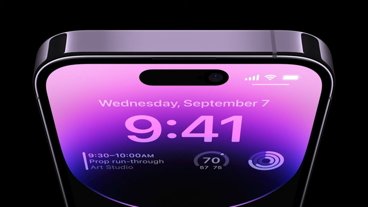Adobe rumored to be abandoning work on mobile Flash player
ZDNet cited "sources close to Adobe" late Tuesday as claiming that the company will soon make the following announcement, possibly as early as Wednesday:
Our future work with Flash on mobile devices will be focused on enabling Flash developers to package native apps with Adobe AIR for all the major app stores. We will no longer adapt Flash Player for mobile devices to new browser, OS version or device configurations. Some of our source code licensees may opt to continue working on and releasing their own implementations. We will continue to support the current Android and PlayBook configurations with critical bug fixes and security updates.
Adobe's partners will reportedly receive an email briefing them on the fact that it is "stopping development on Flash Player for browsers on mobile," the report continued. The company will instead focus its efforts on mobile applications, desktop content "in and out of browser," and investments in HTML5.
The rumored announcement can largely be seen as a win for Apple and a loss for Android tablets and the Playbook. Competitors to the iPad and iPhone had originally touted Adobe Flash as a major selling point for their devices over Apple's mobile offerings, which have eschewed Flash. RIM had highlighted in videos the fact that its BlackBerry PlayBook tablet was Flash-capable.
Making the resource-intensive Flash work for low-power mobile situations has long been a thorn in Adobe's side. The company has encountered delays as it struggled to streamline Flash to run on mobile processors. Earlier this year, Motorola bragged that its Xoom tablet would come "fully Flash-enabled," but then went ahead and launched the device without initial Flash support, promising to add it later.
The end of mobile Flash could also be seen as a vindication of Apple's decision to steer clear of it. The late Steve Jobs famously called out Adobe for its struggles with Flash.
"Flash has not performed well on mobile devices. We have routinely asked Adobe to show us Flash performing well on a mobile device, any mobile device, for a few years now. We have never seen it," Jobs said in an open letter last April.
"Flash was created during the PC era – for PCs and mice. Flash is a successful business for Adobe, and we can understand why they want to push it beyond PCs. But the mobile era is about low power devices, touch interfaces and open web standards – all areas where Flash falls short."
In recent months, Adobe has moved towards HTML5. For instance, in September, the company announced that its Flash Media Server product would support the delivery of HTML5 video to Apple's iPhone and iPad devices. Adobe also unveiled this summer work on an Edge web development tool that will enable creation of Flash-style animations through HTML5.
Adobe's decision to drop development of mobile Flash comes as the company has initiated a round of layoffs due to restructuring. According to a press release on Tuesday, the software maker is aiming to focus more on "Digital Media and Digital Marketing" and will cut 750 full-time positions in North America and Europe as a result.
 Josh Ong
Josh Ong













 Christine McKee
Christine McKee

 Charles Martin
Charles Martin
 William Gallagher
William Gallagher
 Andrew Orr
Andrew Orr
 Malcolm Owen
Malcolm Owen

 Chip Loder
Chip Loder







64 Comments
News flash! Not!
Flash was never suited for mobile applications regardless of what the Flashtards think. It was doomed from the get-go. Finally Adobe realizes it's better to bite the bullet and discontinue a dead technology than to continue milking a dying cow.
Queue the flash apologists and their crybaby whining as to why this means less "choice" for the consumer... </sarcasm>
Hm, I always thought Flash worked perfectly on my Nokia N900, but my demands are probably pretty low.
Nooooooooooooooooooo!!!!!!!!!!
But Flash is awesome and any phone without Flash sucks